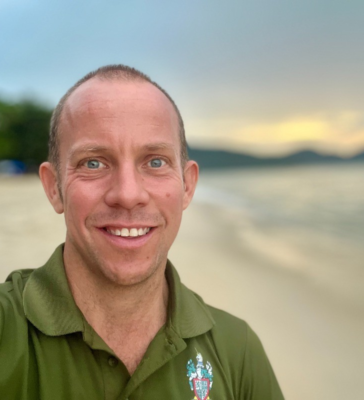
Jeremy Hannay
Current Employer/Organisation Name
London Borough of Ealing
What have you been doing since leaving Exeter, and what are you doing now?
I studied at Exeter part-time while in post as a Headteacher. Since graduating, I have continued in my post as Headteacher while also chairing the local group of schools and leading a learning community across a number of school in the local authority. My school leads support and training for schools locally, nationally and internationally. I provide advisory and consultancy to schools here and abroad.
Why did you choose this career? And what do you enjoy most about your work?
For most of my life, I wanted to be a teacher. No one in my family went to university and neither of my parents graduated high school. Teachers played a big role in my life. I wanted to give something back to the profession that had given so much to me.
What did you enjoy most about your programme and what was the biggest highlight?
Completing a doctoral study and thesis is a big piece of work. It was something that challenged me throughout my time. It wasn’t necessarily the academic challenges that changed me, but the internal challenges of finding the motivation, time, energy and confidence to begin writing. And re-writing. And re-writing again. The biggest highlight for me was hitting ‘submit’ online and knowing that although there were many times I thought I couldn’t do it, that in the end I did.
What did you enjoy most about studying here?
I had some time on and off campus. Mostly off campus. I really enjoyed the city of Exeter when I visited and meeting other people trying to take on the same monumental task I was.
Why did you choose to study at Exeter?
It has a great reputation for research and quality. The part-time offer was essential to me, as I didn’t have the option to leave work to study full time.
What skills and experiences have been most useful for your career?
Completing a research degree changes you. It made me start to look at many things in my own life and work differently – through a new lens. This is both a good and bad thing. Developing the confidence to write and revisit that writing to make it better was helpful. Also having to defend the work I did and listen to other experts critique it and ask challenging questions was a healthy exercise. And, although at the time I struggled with it, making amendments to something I had worked so hard on taught me a lot about my own character and perseverance.
What advice would you give to a current student who wishes to pursue your career?
March to your own beat. Find your rhythm. Don’t just do what every other school or teacher does – its often not based on much more than what they have seen or experienced. Be bold. Be brave. Be courageous.
What are your plans for the future?
I would like to lead a group of schools as an executive leader to support the development of a more staff and student centred ethos.

